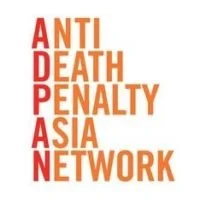Singapore’s 4th UPR: Urgent call for death penalty reform
On 10 October – World Day Against the Death Penalty – CPJP, together with seven international partner organisations, submitted a comprehensive stakeholder report to the United Nations Human Rights Council's fourth Universal Periodic Review (UPR) of Singapore.
Our submission highlights serious concerns about the Government of Singapore's use of capital punishment, particularly for drug-related offences, and documents alarming restrictions on access to justice for those facing execution in Singapore.
The context
Since resuming executions in March 2022 after a two-year pause, the Government of Singapore has executed 37 people. This year has been the worst so far, with 12 executions carried out, including one this week and another less than two weeks ago.
Singapore predominantly executes people for drug-related offences. This places Singapore among a very small group of countries worldwide that actively do so, contrary to international law and standards.
Our submission documents troubling developments, including executions carried out while court proceedings remain ongoing, the execution of persons with disabilities, and increasingly restrictive legislation that limits access to justice and curtails criticism of Singapore’s practices.
What is the Universal Periodic Review?
The Universal Periodic Review (UPR) was established by the United Nations Human Rights Council in 2006. Every UN Member State's human rights record is peer-reviewed by other member states every 4.5 years, with input from civil society organisations.
Singapore’s next review is scheduled for May 2026.
Key concerns
Our joint submission highlights the following critical areas:
Arbitrary application of the death penalty: Aspects of Singapore’s legislation create arbitrary outcomes in death penalty matters. This includes mandatory sentencing, limitations on judicial discretion, and presumptions that reverse the burden of proof.
Executions during ongoing proceedings: Since August 2024, Singapore has executed individuals while they were parties to pending legal proceedings, including civil applications challenging the constitutionality of capital punishment laws. This practice violates international safeguards requiring that executions not proceed while any legal process remains active.
Treatment of persons with disabilities: Despite being a signatory to the Convention on the Rights of Persons with Disabilities, Singapore has executed individuals assessed by psychiatrists as having intellectual disabilities, ADHD, and other conditions.
Restrictions on access to justice: Legislative changes increasingly limit the legal avenues for people on death row to challenge their convictions.
Silencing freedom of expression: In particular, the government uses legislation to hinder efforts to raise awareness about the use of the death penalty in Singapore or to present information that differs from the government narrative.
Our recommendations
Our joint submission calls on the Government of Singapore to:
Impose an immediate moratorium on executions with a view to complete abolition.
Ratify international human rights treaties including the International Covenant on Civil and Political Rights. Implement the Convention on the Rights of Persons with Disabilities in domestic law.
Abolish the death penalty and replace it with sentencing options that are fair, proportionate and in compliance with international human rights standards. In the interim, we call on the government to:
cease executing for drug-related offences, which do not meet the ‘most serious crimes’ threshold under the ICCPR
eliminate the mandatory death penalty and ensure full judicial discretion in all cases
guarantee legal representation for all capital defendants from arrest through to execution
amend legislation in line with fair trial guarantees under international law, and repeal recent legislative amendments that extend liability for contempt of court
review the clemency applications of every person currently on death row
publish timely, transparent and comprehensive data on the use of the death penalty.
End restrictions on freedom of expression that silence criticism of the death penalty.
Submission partners
This submission was prepared in collaboration with:
Anti-Death Penalty Asia Network
Business Leaders Against the Death Penalty
Center for Prisoners' Rights
The Advocates for Human Rights
the Australian Civil Society Committee on UN Drug Policy
the Julian Wagner Memorial Fund
the World Coalition Against the Death Penalty.
The full joint submission provides detailed documentation of our concerns and our comprehensive list of recommendations.







